Reading
Teaching reading is a responsibility we take very seriously and we are very committed to enabling all of our children to leave us as fluent, accurate and confident readers who read with purpose and enjoyment. We believe that reading is a critical skill which no child should be without and our approach ensures no child is left behind.
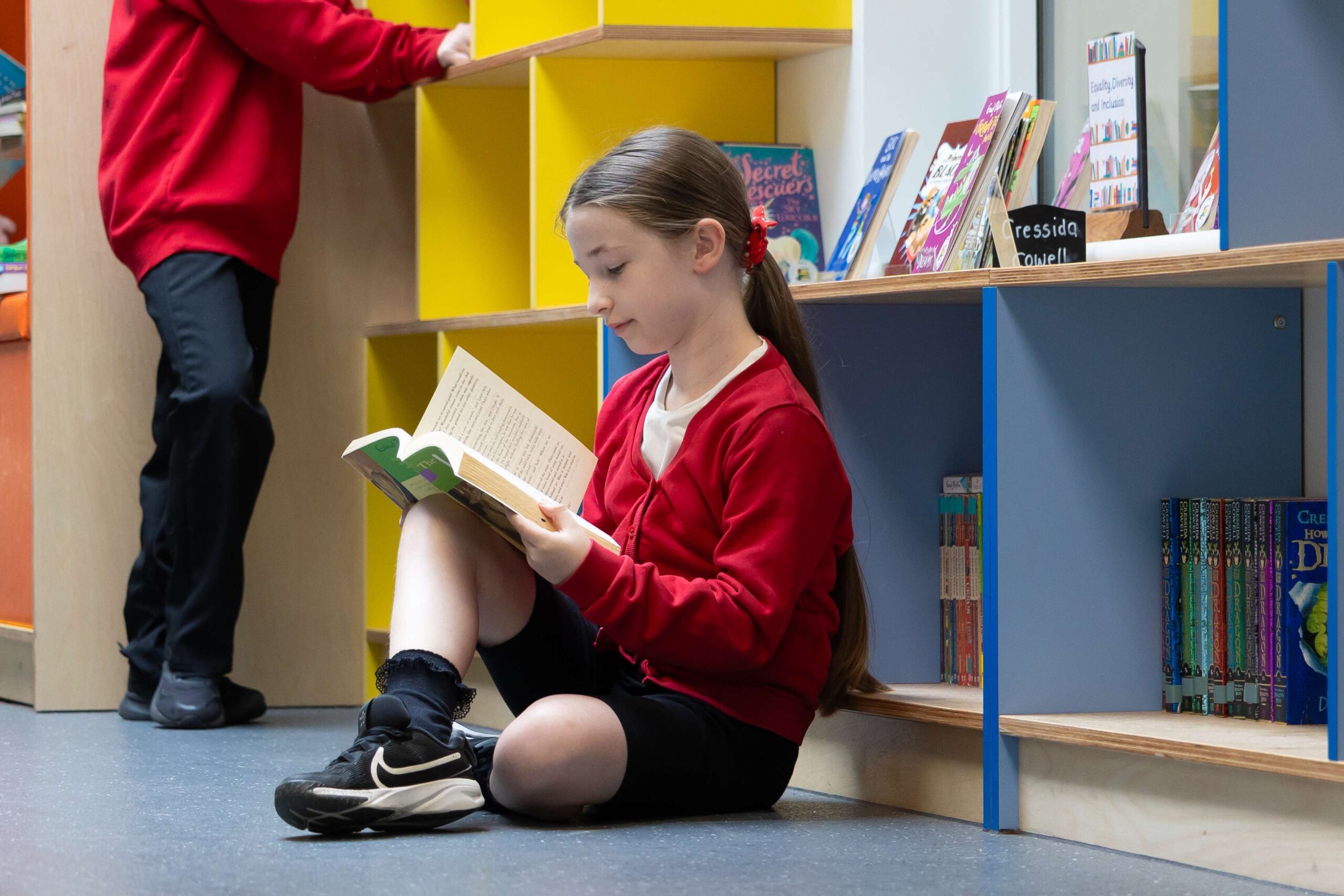
Throughout the school, we have a ‘phonics first’ approach to the teaching of reading and sustain our focus on the teaching of phonics from Early Years (Nursery and Reception pupils) through to Year 6. Children who can decode (sound out the words on the page) quickly and efficiently are able to read with expression and fluency – a priority focus for us in our Early Years and Key Stage 1, so that children are ready for their Key Stage 2 reading curriculum. Throughout Key Stage 2, we continue to develop sophistication in reading fluency and deepen children’s understanding of a wide range of fiction, non-fiction and poetry. Our Key Stage 2 reading curriculum involves novel studies, enabling children to study a wide range of authors and genres in fiction, to use non-fiction texts to undertake their own research across the curriculum, and to enjoy poetry and performance. Our mission is simple: to develop children who enjoy reading and who read a lot of books during their time with us, and well beyond.
Our Reading Mission
Early Years and Key Stage One
We use a phonetically decodable reading scheme which allows pupils to apply their blending skills in the books they are reading at the right point of challenge for your child. Our reading scheme includes a mixture of Rising Stars match text books to our Rocket Phonics books.
As children become more accomplished in their reading, we incorporate a range of ‘real’ reading books alongside these reading scheme materials, so that even our youngest pupils enjoy a rich variety of great books and great authors, inspiring a love of reading which we hope will last them a lifetime.
Children in EYFS and KS1 are taught to read through daily, adult-led phonics lessons followed by guided reading lessons, both lasting 30 minutes. This intensive model of the teaching of reading is designed in a way that our children become competent readers very early in their school career.
We operate a reading scheme which progresses children through coloured reading bands, and we act swiftly to identify children who are not progressing as expected through the reading bands. We remain faithful to our phonics-first approach in any ‘catch-up’ reading which your child may be involved in, and we always welcome your support in reading to and with your child and ask that you try to find the time to do this every day.
Key Stage Two
Throughout Key Stage Two, we continue a phonics first approach with an enhanced focus on the development of a wider vocabulary and the ability to decode longer and more complex words. We follow the ‘whole class reading’ model, choosing novels which introduce pupils to a wide range of authors and different genres and reading at length. There is an increasing focus on the young reader’s ability to interpret what is happening in the text through high-quality follow-on tasks and discussion with their peers, with pupils developing the ability to express their opinions and find evidence for their viewpoint in the text. Both fiction and non-fiction texts are a focus for study.
In addition, pupils who still require additional support in their reading will benefit from an additional small group guided reading lesson, led by an adult, each day. The focus of these sessions will be to continue to rehearse reading out loud with increasing pace and fluency.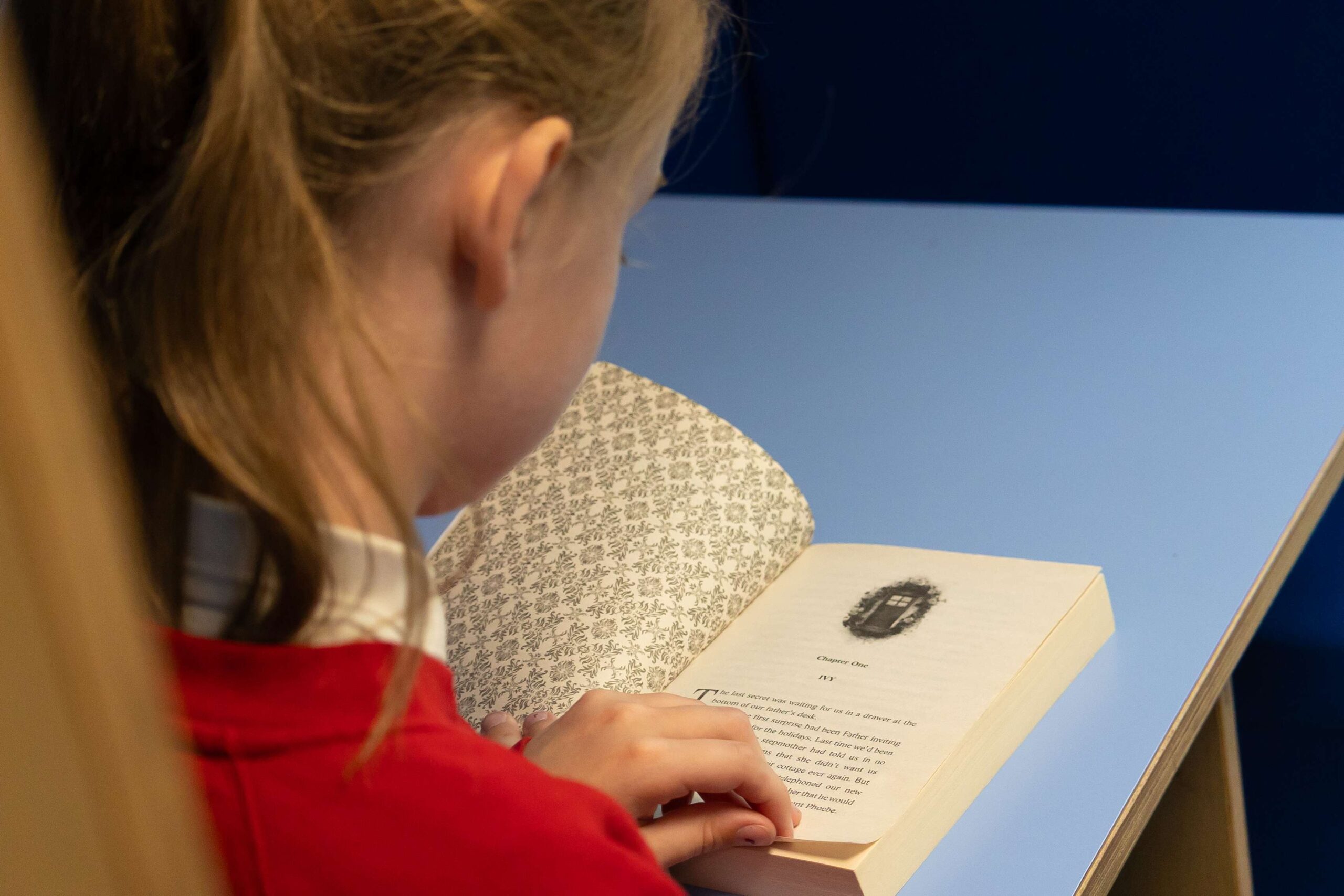
The reading scheme throughout Key Stage 2 continues to be organised in coloured book bands, with pupils encouraged to keep reading regularly at home to ensure they progress through book bands. The KS2 Reading Scheme offers texts of increasing length and complexity, and also serves to continue to introduce children to a wide range of authors and genres.
Throughout Key Stage 2, we also encourage pupils to complete reading homework which may include reading ahead a chapter of the whole class novel or completing an independent reading comprehension task.
We believe that reading is one of the greatest gifts we can give our pupils – so please help us to make sure every one of our pupils leaves us with the reading skills they need to ensure their future success. Reading to your child or with your child, even for ten minutes a day, is 3,640 minutes (over 60 hours!) of reading a year, and 29,120 minutes in their primary career (over 485 hours).
Together, we can give our children the gift of reading and unlock choices about their future. Our team work in this crucial area is perhaps the most important partnership we will form. Please help us to unlock your child’s reading potential:
- Read with your child every day.
- Bring your child’s book bag every day.
- Write in your child’s reading record to record what they have read.
- Make sure your child swaps their book and always has a book that interests them to hand.
- Buy them books from time to time – let them own their own special collection.
- Ask them questions about what they have read and are reading.
- Ask them about the meaning of particular words and, if neither of you know, Google it! Build their vocabulary in real life too – talk to them about the world around them and share new words and new meanings every day.
- Give them lots of praise and encouragement.
- If your child is not making as much progress as you think they should be – talk to us…
Promoting Poetry
Each year, we perform a Poetry Slam. Children come together and perform their favourite piece of poetry to their class. The winners from those class heats then perform their chosen poem to their Phase. Finally, the winners get to perform in front of the whole school! The finalists all get taken to The Little Bookshop as a reward and get to choose their own book!
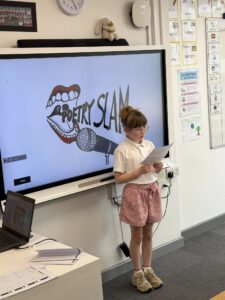
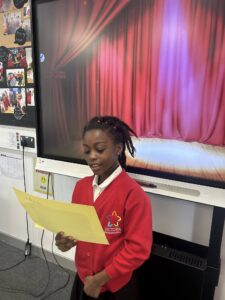
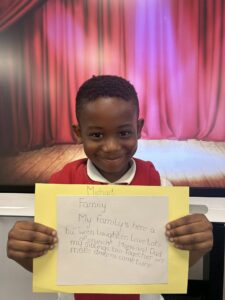
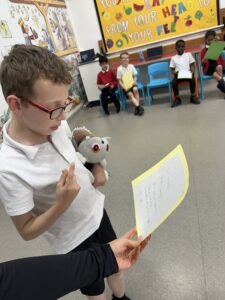
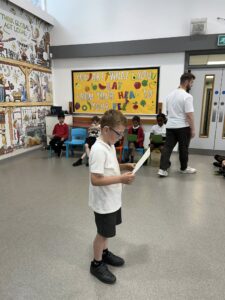
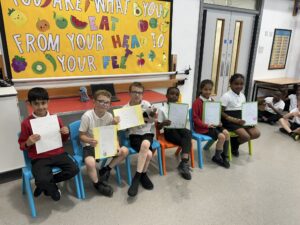
Cultural Diversity.
At Victoria Primary Academy we are conscious of the National Literacy Trust research which shows that 2 in 5 children state that they found it difficult to find books with characters like them. A lack of representation in children’s books can compromise children’s reading experience and therefore negatively impact their educational attainment and life chances. We are committed to ensuring that children are exposed to texts and authors who they can see themselves in. With that in mind, as part of our class libraries, we have Star 6 readers (6 books we would like every child to read in each Year group) and each term we have an Author Focus (See table below).
| Author Focus | |||
| Year | Autumn | Spring | Summer |
| 1 | Joseph Coelho | Fairytales | Alan and Janet Ahlberg |
| 2 | Dua Adeola | Fairytales | Julia Donaldson |
| 3 | Atinuke | Jeremy Strong | Adam Blade |
| 4 | Tom McLaughlin | Chitra Soundar | Philip Reeve Sarah McIntyre |
| 5 | Frank Cottrell-Boyce | Liz Pichon | Katie and Keven Tsang |
| 6 | Malorie Blackman | Ross Mackenzie | JK Rowling |




